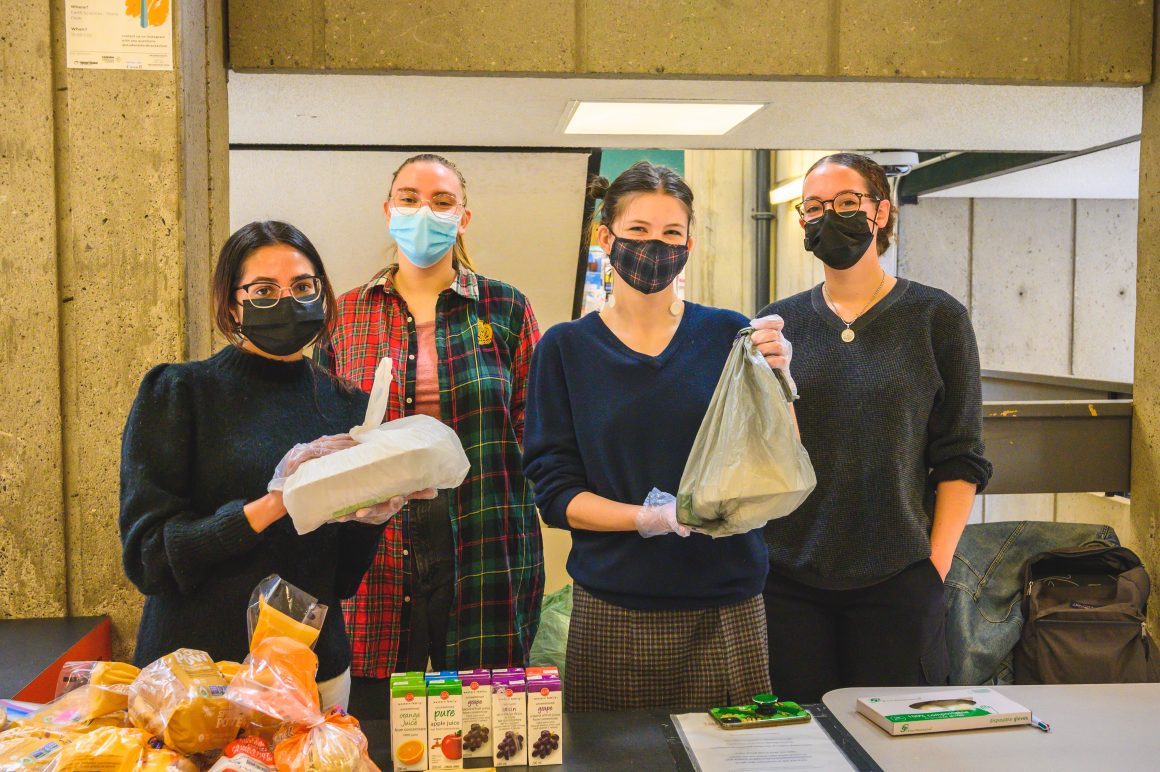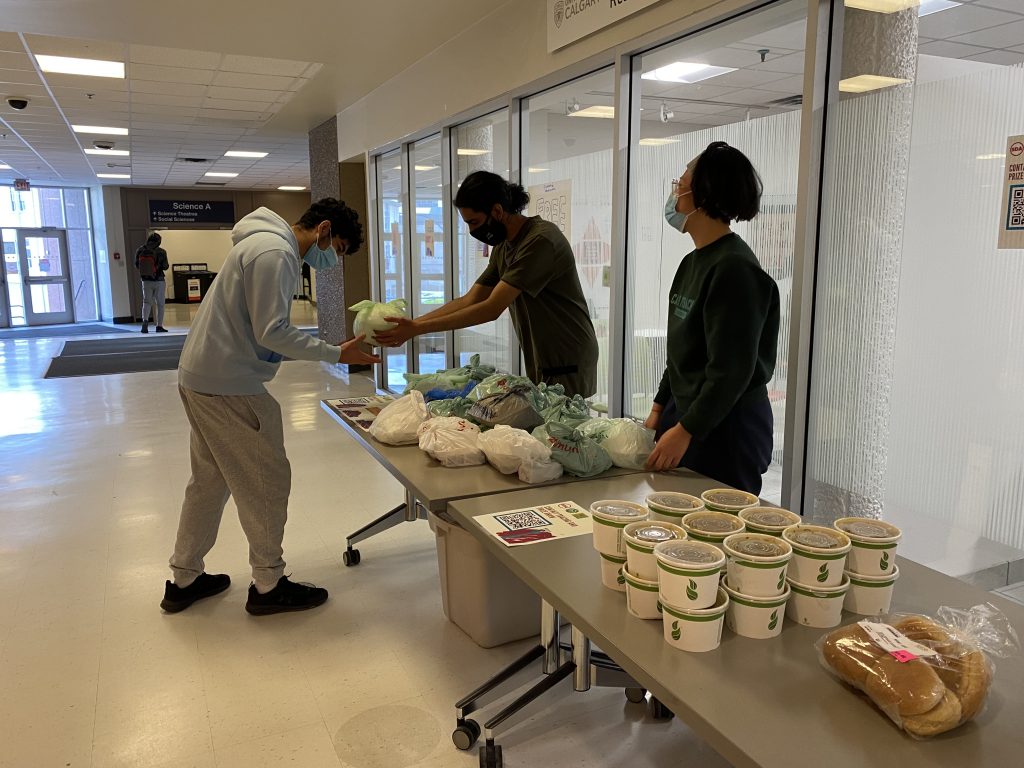
Food Justice Now on upcoming initiatives and growing food insecurities among U of C students
By Cristina Paolozzi, February 4 2022—
On Feb. 4, Food Justice Now, a sub committee of the University of Calgary club Students for Direct Action (SDA), are handing out 50 vegan pad thai meals to students on campus.
Food Justice Now is a mutual aid food service project at the university. On Friday, Food Justice Now is partnering with Home Food Community Kitchen and Monday’s Plant Café, to help provide these meals for students. This initiative will mark 200 meals served by Food Justice Now and their partners since the project started.
With the rise in tuition, housing and the general cost of living for students in Calgary, Isabelle Reynolds — Outreach Coordinator for Food Justice Now — spoke to the Gauntlet about the work Food Justice Now has been doing for at-risk students.
Reynolds said that there are numerous burdens students are facing that have been exacerbated by the pandemic. They stated that the data from Meal Exchange showed that approximately 60 per cent of U of C students are moderately or severely food insecure, and that 56 per cent of students nationwide experience food insecurity. The last time this survey was published was in 2016, and those survey results show that only 36 per cent of U of C students were moderately or severely affected by food insecurity.
Reynolds also mentioned that this survey showed only 10 per cent of U of C students self-report being food insecure, suggesting that although there is a need, there is a large stigma around being food insecure.
Reynolds isn’t surprised — they said that the pandemic, along with an apathetic university administration, are to blame for these statistics.
“Obviously, there’s the pandemic, there’s the dramatic increase in the cost of housing, even over the past six months,” said Reynolds. “There’s obviously the recession that we’re still in, there’s the increasing cost of tuition, especially for international students — their tuition goes up some outrageous amount every year and that’s a huge burden. There’s also the issues with the university not being forthcoming about their plans for the term and causing a lot of uncertainty. That’s kind of the context that we’re operating in.”

Reynolds said that part of the initiatives set out by Food Justice Now are to help students find their voice in food autonomy on campus.
“There are student-run food cooperatives on lots of campuses, there just aren’t any on ours,” said Reynolds. “Students currently at the U of C are cut out of and excluded from conversations about who is allowed to serve food on our campus. There’s Aramark, that is currently probably making millions and millions of dollars off of students, and then there’s the companies that rent in Mac Hall — and the rent in Mac Hall is really high.”
Reynolds said that there hasn’t been a space created for students on campus to be consulted about food options or food access. Reynolds also mentioned the lack of culturally diverse food or healthy alternatives in Mac Hall.
“Students are suffering because of that exclusion, because of the high costs,” they said. “There’s not a lot of culturally diverse food that’s available, and there’s not a lot of healthy options of students and residents — that’s kind of the consequence of having a food system that’s only centred around profit for the university, as opposed to serving students and ensuring that [they’re] fed and have the nourishment [they] need to succeed.”
Reynolds said that despite this, the Food Justice Now project arose specifically to address this lack of control and autonomy. They said that seeing their fellow students suffering with food insecurity inspired this grassroots movement to invest in U of C students.
“I think it’s important in the context of the exclusion and the lack of autonomy of the school, for our project to show students that they have more power than they think,” they said. “We care about them and their community cares about them and we want them to succeed. We can show people that we don’t need the university to be involved in our food choices, we can make those decisions for ourselves and take the power back into our own hands.”
Reynolds said that the best part about working with Food Justice Now is connecting with the volunteers and watching the efforts of their initiatives transform the community.
“The volunteers are amazing, and they love the work that we do,” said Reynolds. “It’s so positive to connect with students and see the impact of one meal to somebody and how profound that can be.”
Last semester, Food Justice Now served 150 meals to students in October and November, and are determined to continue to be a support that students can rely on.
“Of course there’s a lot of privilege that comes with being a university student, but there’s also a lot of difficulty and a lot of people really struggle,” said Reynolds. “I think it’s important to put those messages out into the community and offer opportunities for them to support us and build those relationships.”
To find out more about Food Justice Now, you can check out their Instagram or visit the Students for Direct Action Instagram page as well. They will be having their next meeting on Feb. 9 and all are welcome.
